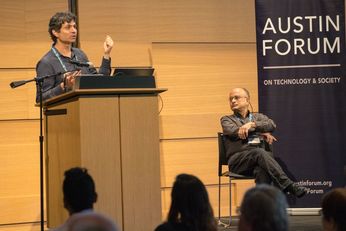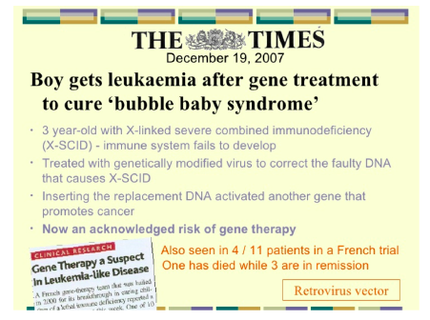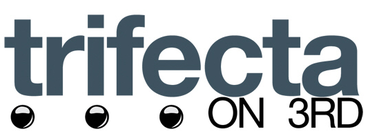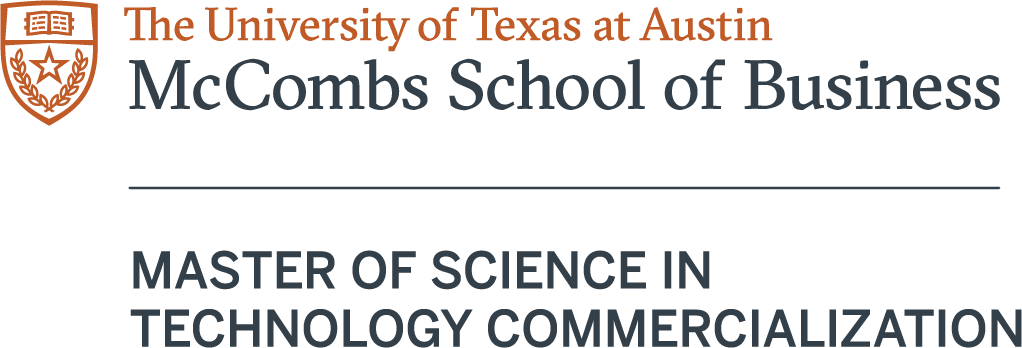 August 2018 Here’s what Happened at the Austin Forum in August Thank you to everyone who attended our event at the Central Austin Library and to our terrific speakers, Drs. Ilya Finkelstein and Sahotra Sarkar! Congrats to Jeff Zavala for the question that won him a SXSW Interactive 2019 badge: “How do we as a community hold gene editing accountable to the public good?” Missed the event? Catch up here... Top 5 Takeaways 1. Gene editing isn't science fiction, it's already happening. The first viable human embryos were created in China in 2016, and while the US has now accomplished that feat as well, China remains far ahead of us. Dr. Finkelstein mentioned this recent Wall Street Journal story. 2. Despite China's being out in front on certain developments in gene editing, the truly groundbreaking discoveries are the result of scientists working on different projects in different countries who find a connection between their projects or working theories a way to connect their discoveries. This often results in a leap forward that could not have been predicted by looking at the projects independently. As Dr. Finkelstein noted, "Fundamental curiosity-driven research is a public imperative," and the future of this kind of scientific work depends on good international relations, and in the US, taxpayer support. 3. Even with the precision of CRISPR, it still has its limitations. It's a lot harder to edit a human genome than it is to edit a virus! Currently, the most vexing problem is - unsurprisingly - unanticipated (off-target) edits. To overcome this, scientists are looking for and engineering more precise Cas9 proteins, the "guided missiles" sent in to make changes; they are selecting target genes very carefully, focusing on simpler ones at first; and they're using multiple methods to verify that edits were made exactly as intended.  4. When considering the ethics of this type of work, Dr. Shankar noted that it was important to make a distinction between gene editing, which is the type of work we'd been discussing and poses certain ethical dilemmas, and gene drives, which he defined as "how supra-Mendelian inheritance results in rapid spread of a gene in a population." Put another way, gene drives can be understood as a technology that can propagate a particular suite of genes throughout a population. They've been proposed as an effective means to genetically modify specific populations and entire species. So there are a lot of additional ethical issues to unpack here. 5. The United States in particular has a legacy to address as technology rapidly increases our ability to manipulate gene drives and to offer germline (as opposed to somatic) gene therapy. Our country has an extensive history, primarily before World War II, with eugenics and forced sterilization and even today, existing guidelines are inconsistent. See more information on the burden of US history in this area.
HELP US CLOSE AUSTIN’S DIGITAL DIVIDE
The Austin Forum accepts donations of used smart phones and tablets at all our events. Donated devices get a factory reset and are set up as new by the team at Austin Pathways’ nationally-recognized “Unlocking the Connection” initiative, which connects every public housing resident with a digital device, digital literacy, and a free or very low-cost internet connection. Your donated smart phone can change lives and help close Austin’s digital divide, thanks to Austin Pathways.
0 Comments
Your comment will be posted after it is approved.
Leave a Reply. |
















